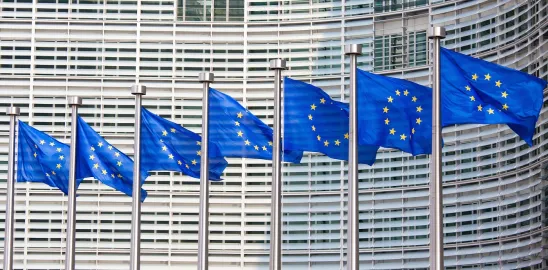On April 18, 2023, eight Greenpeace organizations (the organizations) filed a lawsuit against the European Commission at the European Court of Justice following the Commission’s inclusion of natural gas and nuclear energy in the EU taxonomy for sustainable activities.
The Taxonomy Regulation, which came into force on July 12, 2020, provides a classification system for economic activities that are considered environmentally sustainable. It is supplemented by a number of delegated acts. On July 15, 2022, a Complimentary Climate Delegated Act (the delegated act) was published, which provided for the inclusion of natural gas and nuclear energy in the taxonomy.
Following publication of the delegated act, on September, 8, 2022, the organizations submitted a request for internal review to the Commission relating to the inclusion of natural gas and nuclear energy in the EU taxonomy. They argued that such inclusion was not only in contravention of the Regulation itself, but also the European Climate Law and the EU’s obligations as set out in the Paris Agreement. On February 8, 2023, the Commission rejected the request, leading the organizations to file the lawsuit.
Taking the Temperature: As we discussed recently, we are seeing an accelerating trend in climate-related litigation, particularly in the EU. Greenpeace’s lawsuit is the latest in a number of challenges to the EU taxonomy, and in particular, its inclusion of fossil gas and nuclear energy. Last month, a number of environmental NGOs filed a lawsuit against the Commission in relation to its decision to include fossil gas and nuclear energy in the EU taxonomy, following their submission to the Commission of a request for internal review. On October 7, 2022, the Austrian Government filed a similar case, challenging the inclusion of nuclear and natural gas in the Taxonomy Regulation. Austria’s case has been brought in the Court of Justice of the European Union.
More generally, we have reported frequently on efforts by different countries to develop sustainability taxonomies, including efforts by Canada, Singapore, the Association of Southeast Asian Nations and the UK. As we have observed, taxonomies are essential in allowing investors and companies to understand what industries, businesses and projects will be considered sustainable. However, the development of regional taxonomies with varying approaches and rubrics underscores not only the difficulty in defining a sustainable activity or project, but also increases the regulatory and practical burdens investors and financial market participants will likely face in making investment decisions.





 />i
/>i

